It's been 1 year since I injected insulin, what should I be aware of?
thank you for your invitation
Insulin shot precautions:
1. Understanding insulin
There are many classifications of insulin based on the time of onset of action, such as ultrashort-acting (fast-acting), short-acting (regular), intermediate-acting, long-acting, and premixed insulin.
Different types of insulin have different glucose-lowering effects and onset of action times, and the selection of injection sites and injection time requirements are also different, so sugar users should be familiar with the insulin they are playing to grasp, check before injection, and do not inject at random, so as not to cause hypoglycemia.
It is important to realize that hypoglycemia with insulin injections is a common occurrence and sugar users must be aware of it.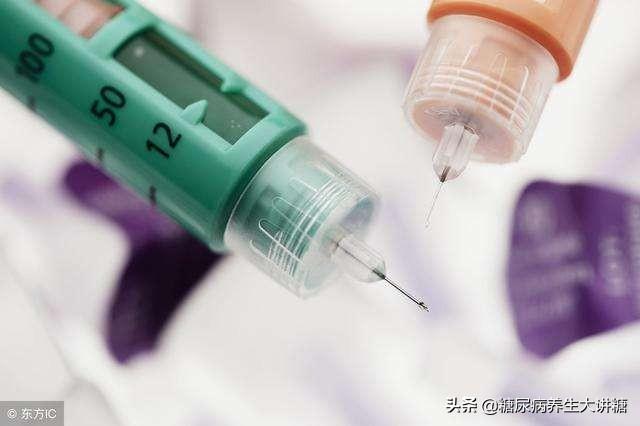
2, pay attention to the correct preservation method
Temperature, light conditions, and vibration all affect the medicinal properties of insulin, most certainly temperature.
Too high or too low is not good, it will affect the activity of insulin, the correct temperature is no more than 25 degrees Celsius and no less than 0 degrees.
Also open insulin should pay attention to the expiration date, do not continue to use after the expiration date.
3、Correct use of insulin
{!-- PGC_VIDEO:{'status': 0, 'thumb_height': 360, 'thumb_url': '38e7000574e344554810', 'user_id': 4082689626, 'neardup_id': 3439414080529298548, 'vid': 'cf4e769e3fd94028a68eb6c6647206f4', 'src_thumb_uri': '38e7000574e344554810', 'sp': 'toutiao', 'vposter': 'http://p1.toutiaoimg.com/origin/38e7000574e344554810', 'external_covers': [{'mimetype': 'webp', 'source': 'dynpost', 'thumb_height': 360, 'thumb_url': '38e4000b5fc663616486', 'thumb_width': 640}], 'thumb_width': 640, 'item_id': 6462203439412675085, 'vu': 'cf4e769e3fd94028a68eb6c6647206f4', 'md5': '', 'duration': 66, 'media_id': 4088161996, 'group_id': 6462203439412675085, 'hash_id': 3439414080529298548, 'vname': 'RIu6ce8u5c04u90e8u4f4du8f6eu6362u64cd.MOV', 'thumb_uri': '38e7000574e344554810', 'video_size': {'high': {'h': 480, 'subjective_score': 0, 'w': 854, 'file_size': 4815669}, 'ultra': {'h': 720, 'subjective_score': 0, 'w': 1280, 'file_size': 11286052}, 'normal': {'h': 360, 'subjective_score': 0, 'w': 640, 'file_size': 3408540}}} --}

4、Injection of insulin attention time
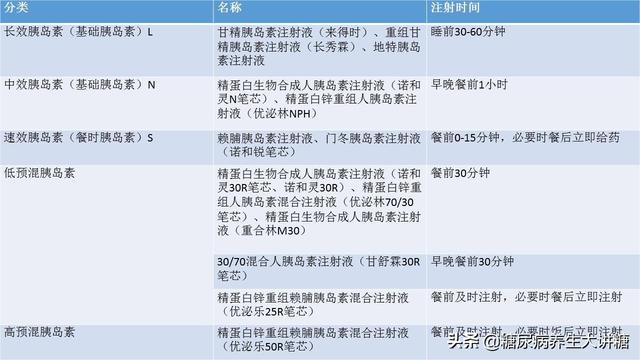
This article throughout the hand-typed, so if you like my answer, then please like, attention, forward, and any questions welcome to comment or private letter, more diabetes, chronic disease information in this headline, your support is my biggest yards power, thank you.
Diabetes may be treated with insulin during the course of the disease, perhaps for a longer period of time, even for life, or it may be used for a short period of time, for a few days, or for a few months, and then discontinued.
The exact situation is determined by a number of factors, including the patient's condition at the time of the onset of the disease, the type of disease, the state of pancreatic islet function, the patient's wishes, and the economic level.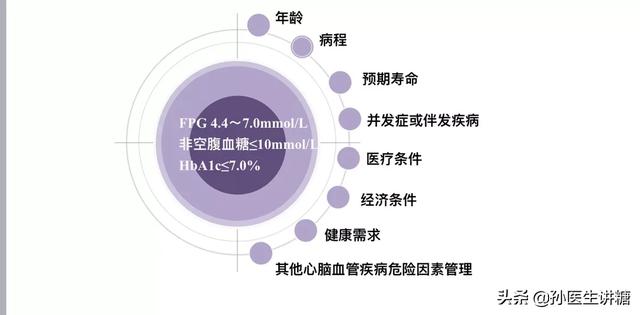
After 1 year of insulin injections, it is important to note that insulin dosage should be adjusted according to the blood glucose situation. Early intensive treatment may lead to a "honeymoon period" for some patients, when the insulin dosage is reduced significantly or stopped completely. It is important to monitor blood glucose closely to prevent severe hypoglycemia.
Perform islet function tests: It is in fact entirely possible to assess based on blood glucose changes and insulin dosage. If a clinical basis is needed, islet function tests are still recommended.
Complications check: The annual tests needed include fundus, urine protein, liver and kidney function, blood lipids, glycated hemoglobin, electrocardiogram, ultrasound of neck, heart and lower limb blood vessels, etc., to detect complications as early as possible and treat them as soon as possible.
Insulin application
Type 1 diabetes:: For type 1 diabetics to be on lifelong insulin therapy, this use is supplemental therapy because there is no insulin in the body and insulin is the only glucose-lowering hormone, so exogenous supplementation is needed.
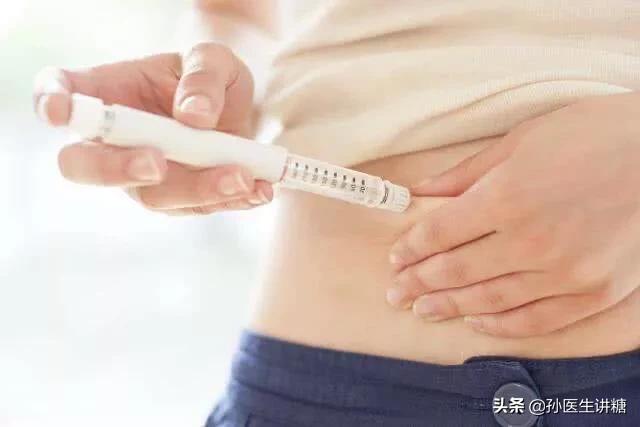
Type 2 diabetes:: Patients diagnosed with type 2 diabetes should have maintained their blood glucose at a decent level after 1 year of insulin application, and if the pancreas is functioning better and the insulin dosage is smaller, they can consider discontinuing insulin and switching to oral hypoglycemic agents.
Higher insulin dosages can also be combined with oral medications, which will reduce the insulin dosage and thus reduce the side effects of hypoglycemia and doing weight gain from insulin.
I'm Dr. Sun, pay attention to Dr. Sun talk about sugar, continue to learn more quality health knowledge, help please like, have questions please leave a message, will reply!
Although there are a lot of new hypoglycemic drugs, insulin is still one of the most basic and effective drugs to control blood glucose, especially type 1 diabetic patients need to inject insulin for life, so a lot of patients will be worried about the long-term injection of insulin whether there will be side-effects or what needs to be paid attention to, I want to tell you, you need to pay attention to the two words "monitoring"! I would like to tell you that you need to pay attention to two words "monitoring", what is monitoring?
I. Measurement of weight:
Weight gain may occur with long-term insulin injections, and it is important to monitor your weight to see if you are gaining weight.
Second, observe skin changes:
Check commonly used insulin injection sites for signs of lipoatrophy or atrophy; these changes can alter the rate of insulin absorption, so pay attention to the rotation of injection sites.
III. Funduscopic examination:
Screening for retinopathy, which has nothing to do with whether or not insulin is injected, but simply means that the most common complications should be screened for at least once a year.
Fourth, whether the dose of insulin is increased:
Monitor for a tendency to increase the dose of insulin, i.e. having to control your blood sugar by increasing the dose of insulin, and for insulin resistance.
V. Handling of special situations:
If you are sick, hungry, traveling or eating out, the insulin dose often needs to be changed, with attention to blood glucose monitoring.
VI. Routine blood glucose monitoring:
Depending on the type of insulin injection and frequency of administration, blood glucose is routinely measured at different times of the day or week, and glycated hemoglobin is monitored for three months.
VII. Increased doses of insulin are required for the following conditions:
Hyperthermia, antimicrobial thyroid function, acromegaly, diabetic ketoacidosis, severe infection or trauma, and major surgery.
In conclusion, insulin is one of the most basic and effective medications for the treatment of diabetes mellitus. During the period of medication, blood glucose, urinalysis, liver and kidney functions, visual acuity, retinal blood vessels of the fundus of the eye, blood pressure, and electrocardiograms should be tested regularly in order to understand the condition of the disease and diabetes mellitus complications.
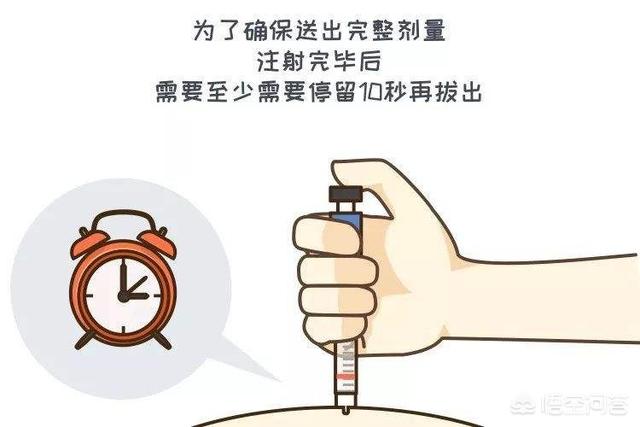
Hi, Sanno Speak Sugar is happy to answer your questions!
Precautions for Insulin Injection
1、Injection site: choose the part with more fat tissue for injection, such as abdomen, arm, and back of hip. If the injection is painful or blood comes out after pulling out the needle, you should press the injection site for at least 10 seconds and do not rub the area, so as not to cause insulin to spread too fast or skin inflammation.
2, insulin preservation: insulin in use does not need to be placed in the refrigerator, at room temperature 5-25 ° preservation can be, to avoid violent vibration and strong light exposure, since the date of opening the validity of 28 days, unopened insulin must be stored in the refrigerator at a constant temperature of 2-8 °;
3, the use of the problem: short-acting insulin is used before meals, if you need to use must be injected before meals, do not play sometimes and sometimes not play. Pre-mixed insulin injection must be mixed well before injection. The injection needle is disposable, avoid reuse.
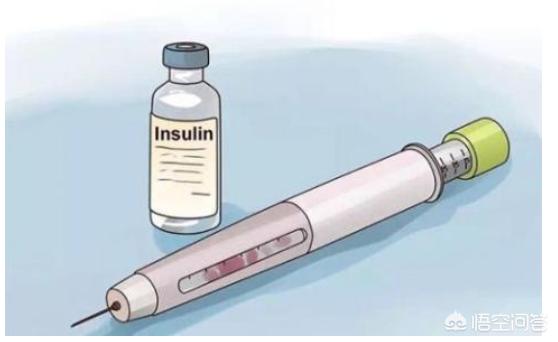
4, after injecting insulin: must pay attention to the hypoglycemic reaction, in order to prevent bleeding hypoglycemia, because hypoglycemia is more serious than hyperglycemia, there will be severe hypoglycemic coma and other conditions. In the case of certain diseases to reduce the amount of insulin, such as the emergence of liver and kidney function damage, hypothyroidism, nausea and vomiting symptoms, to reduce the dose.
5. The treatment plan and injection dose of insulin need to be decided by the doctor according to the patient's weight, diet, blood glucose and complications, and pay attention to the rechecking of blood glucose under the doctor's guidance.
6、Regularly change the injection site, so as to avoid hard knots at the injection site, or produce fat atrophy, which will affect the absorption of insulin, thus affecting the control of blood glucose.
It's not easy to write by hand. If you agree with the views in the article, appreciate a like, click a concern, if you have any questions, you can leave a message or invite "Sanno talk about sugar" to answer!
Follow your doctor's instructions, test your blood glucose regularly, eat a balanced diet, and if your blood glucose fluctuates you need to go to the hospital for a consultation to assess whether you need to adjust your insulin dosage!
Thanks for the invitation!
For some diabetic patients, because of their own reasons, such as poor liver and kidney function, pancreatic islet failure, etc., they have to use insulin treatment, however, long-term injection of insulin will also bring a lot of troubles, such as injection site hard knots caused by discomfort, injection pain, bleeding, unsatisfactory glucose control, blood sugar fluctuations, fluctuation of high and low, and so on.
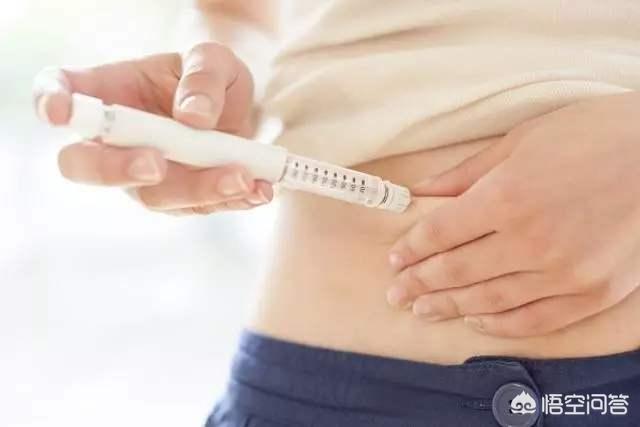
In response to the above, we have the following recommendations:
firstlyProblems with the use of injection needles: Under normal circumstances, although insulin injection pens are personalized, it is also recommended that injection needles be single-use and replaced with new ones for each injection. However, most of the patients who need insulin injections are using a needle many times and repeatedly, and some patients even use a needle for up to a month. This is to save money, and secondly, it still feels good when used many times. But the insulin needle is very thin and hollow, there is a membrane on the surface of the needle, this membrane makes the needle very smooth, almost no obstruction in the process of piercing the skin, which can effectively reduce the pain, and at the same time, the membrane also contains ingredients to avoid bacterial growth, which is why even if the long-term use of insulin patients, there are very few cases of infection in the eye of the needle; however, if you use a needle many times, this membrane will be damaged, then we The protection of the skin is gone, and the repeated use of insulin needles for a long time can not only cause localized pain and bleeding, but also lead to subcutaneous nodules at the injection site, which in turn affects the absorption of our insulin.
Secondly.Problems with preservation of insulinEven if you inject insulin for a long time, don't buy too much at one time, it is recommended to reserve one month's amount at most. Opened insulin, because it will be used every day, so it doesn't need to be put into the refrigerator, it can be stored at room temperature, usually 0-25 degrees Celsius, and the preservation period is one month after it is opened and it can't be more than the shelf life of the drug; if it's summer or in a hot place, it can be put into the refrigerator for preservation, the recommended temperature is 2-8 degrees Celsius. If it is summer or hot place, you can keep it in refrigerator, the recommended temperature is 2-8 degrees Celsius, when you need to inject it, you should take it out half an hour beforehand, and then inject it after it becomes room temperature. Unopened insulin can be stored in the refrigerator at 2-8 degrees Celsius, but not in the freezer, as the insulin that has been frozen and reopened is already invalid and cannot be used further.
endInjection site rotationWe generally divide the abdomen into four regions, these four regions are to the belly button 62.5px away from the abdomen, divided into the upper left, lower left, upper right, lower right, of course, our thighs and buttocks can also be injected, the thigh region refers to the upper 1/3 of the front outer thighs, the buttock region refers to the upper outer side of the buttocks, the thighs and buttocks can be individually divided into two regions, that is, the left side and the right side; it is recommended to use a region every week, and always use a region. and always follow a clockwise rotation. When injecting in any one area, the interval between two consecutive injections should be at least 25 px, which is approximately the width of an adult finger, and the systematic rotation should be performed in such a way as to avoid repetitive trauma to the tissues and to minimize the incidence of subcutaneous sclerosis.
I hope that after today's sharing, you can use insulin more safely and effectively.
Hello, Diabetes House is happy to share with you some of the do's and don'ts of insulin injections:
Note 1: Pre-mixed insulin must be shaken well before injection;
Note 2: The injection should keep the local skin clean and dry, and injection to properly control the injection speed;
Note 3: The needle should be left under the skin for ten seconds after injection.
Note 4: Wash your hands with soap in advance to prevent contamination of the injection apparatus, each time before the injection should be sterilized local skin, and wait for the alcohol to evaporate before injection;
Note 5: Balance the needle with the insulin pen when installing the needle and removing the cap to prevent breaking the needle off;
Note 6: The injection site is preferred to the abdomen, each rotation, the interval between the injection points must be more than 2 cm, a single injection point should not be injected more than 2 times in less than a month
First of all, do you need to know whether your diabetes is type L, type LL, or type L+LL? Then, you need to know whether you have high blood glucose before meal (20%), high blood glucose after meal (60%), or double high (20%)? As long as you have diabetes, regardless of the type or stage of high blood sugar, external insulin supplementation is the most scientific and effective treatment, followed by chemotherapy. Supplementation of external insulin is usually in the form of injections, in which the best effect is achieved by injecting into the abdominal adipose tissue area.1. Long-term insulin injections must pay attention to the fact that the injections should not be too concentrated in one area, which is conducive to the absorption of the drug and is not easy to produce the drug accumulation type of nodules;
2, pay attention to the storage temperature and location of insulin, generally speaking, unopened insulin refills should be stored in the refrigerator freezer area at a temperature of 2-8 degrees Celsius is appropriate, opened insulin refills should be stored in a cool and ventilated place, but except for the summer (higher than 22 degrees Celsius) must be placed in the refrigerator freezer, take out the refills 30 minutes before use before using them, if you want to travel or business trips If you are traveling or on a business trip, it is best to prepare a cold pack and place it in the refrigerator after arriving at your destination;
3, pay attention to the sterilization of the injection pen needle, do not use for a long time without replacement, so that the unhygienic will make the needle eye inflammation, but also make the needle clogging;
4, if you find attention to the site of fat collapse or nodules to be treated with hot compresses to make the nodules softened and absorbed, suspended in this area for injection, pay attention to the distance between two injections should be more than 5mm, if the eye of the needle inflammation should also be treated in a timely manner;
5, not arbitrarily add or subtract foreign insulin injection unit, only follow the doctor's instructions;
6. Ineffective oral administration of exogenous insulin;
7. Keep your mouth shut and your legs open.
This question and answer are from the site users, does not represent the position of the site, such as infringement, please contact the administrator to delete.